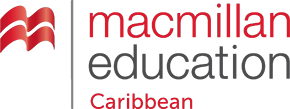How to teach successful revision strategies to secondary students
The first thing is to be organised. Revision is not a time to relearn. Encourage students to review and reflect on their learning throughout lessons. This will result in learning to a deeper intellectual level at the time, which will ensure that effective revision can take place. The key message is to plan well ahead and not to leave revision until the exam period is upon us. Support students in organising their time well. They should design a realistic time table that includes all of the subjects that they need to study and breaks. We know that the planned breaks are extremely productive, allowing students to recharge their batteries. This also means that they can organise their time into manageable chunks. I really do like to use the phrase, as I have with all of my students - ‘fail to plan, plan to fail’.
Secondly remember that students probably don’t know how to revise. They might have sat numerous exams before they came to you so you might find this difficult to believe. I have run many revision conferences and I always ask the question ‘Who taught you to revise’. The resounding answer is usually – ‘no one, we were just expected to know’. Apart from once when a PhD student stood up and said ‘you did’. And yes, this was one of those moments in teaching that inspires you on a challenging day.
How do we teach revision strategies? The key thing is to provide as many different strategies as possible. This can range from recall tools such as revision cards and post its, mind maps and key word card sorts. Equation hexagons are also useful especially when using formula or equations. Like mind maps they also show clearly the links between information and content. When we are in the revision period, we need to avoid learning the same thing twice because they are taught in different subjects or topics. For many years researchers report that the most effective revision tool is quizzes. Realistically these are an active exam. The power of this strategy increases when students write the questions and the expected answers. They then engage in the quiz. Don’t discourage the heated debates that students engage in for the prized point. This is an excellent strategy to engage students in the content at a much deeper intellectual level. By the time we have a winner of the quiz how many times has each individual processed the information? The more times the information is processed the better chance it has of making it past the short-term memory and sitting in storage in the long-term memory until the day it is retrieved in the exam. That one point then becomes extremely important.
Encourage students to find their own strategies that work well for them. They might choose to work with a revision buddy or alone. Be prepared for the favoured strategy to change repeatedly. This could be the result of the subject, contents or simply the mood they are in. Allow students to change and adapt as they progress through the revision period. Remind them to change their revision timetable. It is better to change it because life has taken over than throw it away and scrap revision.
Finally, be positive. Stress and anxiety are not conducive to learning for anyone, especially young inexperienced students. Praise their efforts and resilience. Tell them that 1 mark out of 20 is better than zero. This is the point of revision. Find out the weakness and address it with revision. They enter the exam room confidently because they know they have done all they can to be successful.
- Debbie Roberts
